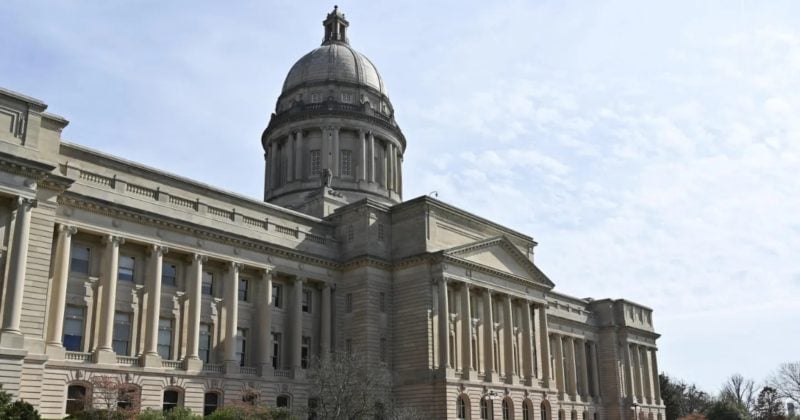Photo: Timothy D. Easley
Key Takeaways
- Kentucky joins as the 16th US state to propose legislation for establishing a Bitcoin reserve.
- Missouri has filed bills to authorize Bitcoin for state payments, marking its second such proposal.
Share this article
Kentucky and Missouri have become the latest US states to introduce legislation aimed at establishing a Bitcoin reserve, as more state governments explore digital asset adoption.
The bill, KY HB376, introduced by State Representative Theodore Joseph Roberts on Feb. 6, would allow the State Investment Commission to allocate up to 10% of excess state reserves into digital assets, including Bitcoin.
The legislation specifies that eligible digital assets must have a market capitalization exceeding $750 billion averaged over the previous calendar year.
Currently, only Bitcoin, with its $1.9 trillion market cap, meets this criterion.
“The SEC, the Fed, and even Congress will have to grapple with how to classify Bitcoin in public reserves — is it a commodity? A security? Something entirely new?” said Anndy Lian, author and intergovernmental blockchain expert.
Missouri has also joined the movement, with Representative Ben Keathley filing House Bill 1217, which would authorize the state to hold and accept Bitcoin for state payments. This marks Missouri’s second Bitcoin reserve bill, following Senate Bill 614.
Today I filed HB 1217 which would authorize Missouri to hold and accept Bitcoin for state payments. This will help diversify our state’s portfolio while hedging against inflation. #moleg https://t.co/tokLpGlWMJ
— Rep. Ben Keathley (@benKeath) February 7, 2025
The Kentucky bill includes provisions for state retirement funds to invest in exchange-traded products tied to digital assets and establishes custody requirements with multi-party governance and regular audits.
The legislation explicitly excludes Central Bank Digital Currencies from accepted payment methods for tax obligations.
Kentucky and Missouri join the list of states that have introduced Bitcoin reserve legislation. This list already included Arizona, Alabama, Florida, Massachusetts, New Hampshire, North Dakota, South Dakota, Ohio, Oklahoma, Pennsylvania, Texas, Utah, and Wyoming.
Share this article
